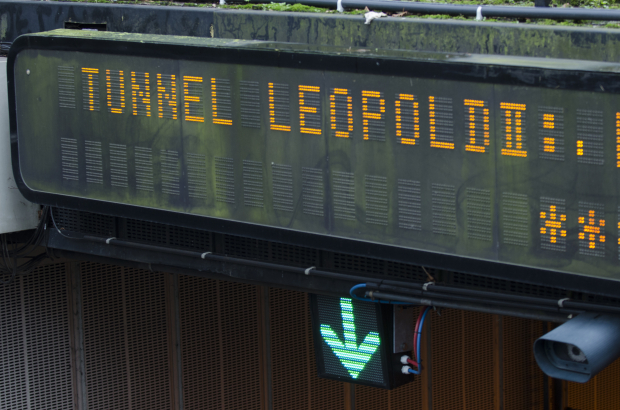- Daily & Weekly newsletters
- Buy & download The Bulletin
- Comment on our articles
Brussels citizens asked to vote on new female name for Leopold II tunnel
Brussels residents have been given the opportunity to vote for a new name for the capital's Leopold II tunnel. A shortlist of 11 famous women, picked from an astonishing 13,000 initial suggestions, has been drawn up by a special committee and citizens of the city will be able to cast their vote from Monday, 1 February.
The poll will be open for one month with the winning name announced once the renovations to the tunnel have been completed.
The choices are:
Andrée De Jongh (1916-2007)
The resistance fighter and nurse, who had a street named after her in the city last year, helped Allied pilots who had crashed in Belgium to escape the Nazis and return to England.
Annie Cordy (1928-2020)
Brussels said goodbye to the beloved singer, actress and comédienne this year. Baroness Cordy enjoyed a glittering international career and captured many hearts with her enthusiasm and smile.
Chantal Akerman (1950-2015)
Akerman was one of the most important filmmakers in film history, but always remained a little undervalued in Belgium. The pioneer in feminist and experimental film became best known for her portrait of Brussels housewife Jeanne Dielman.
Isala Van Diest (1842-1916)
Van Diest was the first Belgian woman to be recognised as a medical student. She focused on the support and care of prostitutes in Brussels and was involved in the fight against the international trafficking of women.
Marguerite Yourcenar (1903-1987)
Marguerite Cleenewerck de Crayencour was a novelist, poet, translator, and critic known by the nom de plume Marguerite Yourcenar. The Brussels-born Frenchwoman was the first woman elected to the Académie Française.
Marie Curie (1867-1934)
The French scientist, who specialised in the research of radioactivity, was the first woman to receive the Nobel Prize and the only one to receive the award twice, in two different scientific fields. Curie also trained female radiologists during World War II.
Rosa Parks (1913-2005)
The American icon of the civil rights movement refused to give up her seat on the bus to a white man in the 1950s, which at the time was against the law, igniting an already volatile racial situation in the United States. The Supreme Court later ruled that Parks had acted correctly, declaring segregation unconstitutional.
Semira Adamou (1978-1998)
The Nigerian asylum seeker was killed by asphyxiation when she was forcibly deported by five Belgian gendarmes. Her death sparked a fierce debate about migration and asylum procedures in Belgium.
Simone Veil (1927-2017)
The story of French politician inspires many. Veil, who was the only one of her family to survive the concentration camps during World War II, is best known for the law decriminalising the voluntary termination of pregnancy. She went on to become the first President of the European Parliament.
Sophie Kanza (1940-1999)
The first Congolese woman to finish high school, to obtain a university degree (sociology) and hold ministerial positions in his own country. She went on to become deputy assistant director-general of Unesco from 1981 to 1985 and then Head of Mission to the Director-General of UNESCO from 1985 to 1988.
Wangari Muta Maathai (1940-2011)
The first African woman to receive the Nobel Peace Prize in 2004. The scientist was committed to women's rights, but also to the environment. Wangari is known as the "tree woman" because she and her organisation Green Belt planted more than thirty million trees in devastated areas around the world.
The initiative to rename the tunnel after a prominent woman is being led by Brussels mobility minister Elke Van den Brandt and secretary of state for equal opportunities Nawal Ben Hamou.
When the initiative was first launched in March last year, Ben Hamou revealed that only 6.1% of the streets in Brussels are named after a woman. Of course, she said at the time, the history and story of Brussels involves both men and women so it is only right that the latter must therefore also find their symbolic place in public spaces.
A name-change of a public space or road usually must go through a long legal process due to the fact it affects residents living there. As no one resides in the Leopold II tunnel, the initiative can proceed relatively freely.




















Comments
"As no one resides in the Leopold II tunnel..."
Are we sure about that?
Not needed to change its name. But if it's allowed, I would go for the best woman leader, Angela Merkel. But maybe not allowed in Belgium
Sémira Adamu would have been a good choice.
Isn't the concept of a female tunnel a teeny bit obscene? Bridges might be more appropriate.